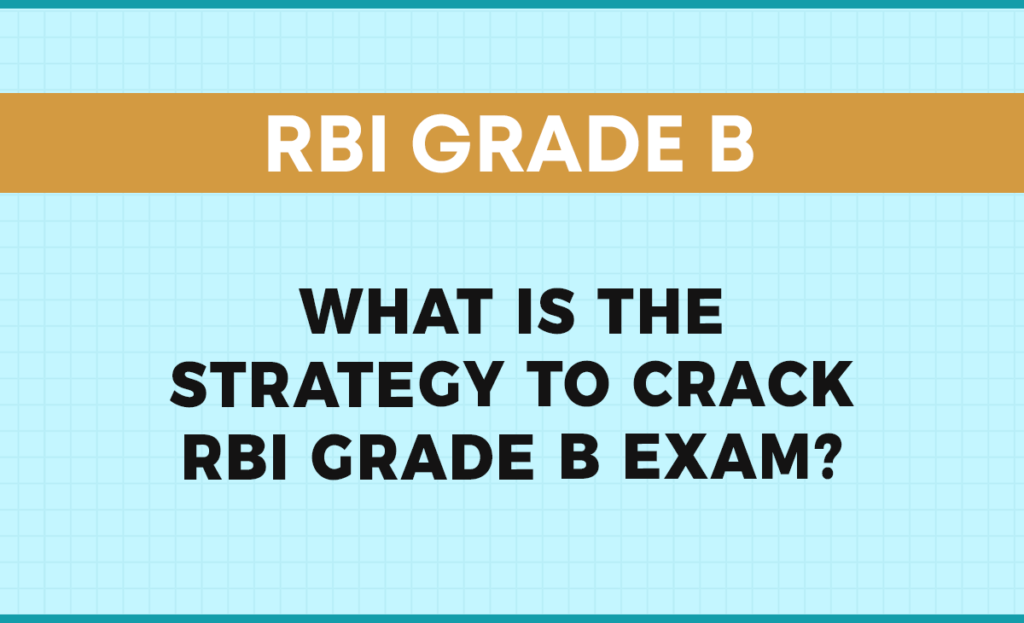The Reserve Bank of India (RBI) Grade B examination holds an elite place as a tough exam, which many equate to the UPSC CSE Exam. To become the next RBI Grade B officer in 2025, you need the RBI Grade B syllabus as well as a strong preparation strategy.
In this blog, we will explore how to approach your studies effectively and come up with a solid RBI Grade B preparation strategy, while keeping the RBI Grade B syllabus at the core of your strategy.
Understanding the RBI Grade B Syllabus and Exam Structure
Before you kick off your preparation, it is highly recommended to first get familiar with the RBI Grade B syllabus and the exam structure. The exam has three stages: Phase I, Phase II, and an Interview.
Phase 1 is an objective test meant to filter lakhs of candidates who apply for the RBI Grade B exam. About 99% of candidates who had applied for the exam get eliminated in this stage, and only 1% of candidates who clear the cutoff get to proceed to the next stage, i.e., Phase 2.
Phase 2, however, digs deeper and tests the candidates based on their ability to write descriptive answers and mark answers in MCQs. Candidates will be tested on 3 papers- Economic and Social Issues (ESI), Finance and Management (FM), and Descriptive English.
Except for the descriptive English, which is completely descriptive, ESI and FM come with 30 MCQs and 6 descriptive answers (out of which you have to attempt 4). Finally, the interview assesses your personality and communication skills in front of the panel members.
The RBI Grade B syllabus is the first thing you need to completely remember by heart. It details all the topics that you need to cover to clear this exam. RBI, in its RBI Grade B notification, gives a detailed enough syllabus. However, you need to break it down further to make individual topics, making preparation easier for you.
Crafting a Study Plan with the RBI Grade B Syllabus
Understanding what the RBI Grade B syllabus demands will give you your best chance at success.
- First, determine your starting point by taking a mock test to pinpoint your expertise areas, along with the subjects that require improvement.
- Devote additional study time to number series and quadratic equations since Quantitative Aptitude demands extra effort.
- Devote yourself to reading The Hindu or Economic Times daily, together with a monthly current affairs magazine, because Current Affairs is the most dominant component of this exam.
Your study schedule must distribute focus equally between all components of the RBI Grade B syllabus.
- The first stage of preparation needs daily attention to Reasoning and Quantitative Aptitude in the morning, followed by English drills during the daytime and General Awareness sessions at night.
- Devote specific time blocks throughout Phase II to study economic policies together with financial concepts, in addition to management theories.
- Scheduled weekly mock tests provide a way to track your progress, which helps you plan your study schedule. Daily coverage of the RBI Grade B syllabus will give you momentum while keeping your schedule on the right track.
Practice and Revision Using the RBI Grade B Syllabus
The path to excel in the RBI Grade B syllabus depends on consistent practice as its central focus.
- Devote daily efforts to solve 20-30 questions from individual topics, such as percentages or logical reasoning. Move on to complete mock tests after developing proficiency with topic-wise mocks that simulate the exam atmosphere.
- RBI Grade B syllabus comprehension, as well as test speed and accuracy, improves through the practice of full-length mock tests, which reveal gaps in your knowledge.
- You should evaluate your results from each exam and find the mistakes you committed. Spot the mistakes, work on strengthening those concepts, and implement these results to solidify your preparation approach.
Revision is just as critical. Make really concise study notes that aid your memory recall. Revise your prepared notes once per week to store them in your memory.
The Descriptive English section calls for practicing essays about banking and contemporary issues, which aligns with the RBI Grade B syllabus.
Your preparation is made up of two components: Practice and revision to become exam-ready.
Conclusion
The RBI Grade B preparation is certainly demanding and calls for a gruelling schedule, considering the lengthy syllabus and topics to cover. However, if you decode the RBI Grade B syllabus well, block your calendar to study for 6 months, take good care of your health, and smartly cover the syllabus, there’s nothing that can stop you from being an RBI Grade B officer.

